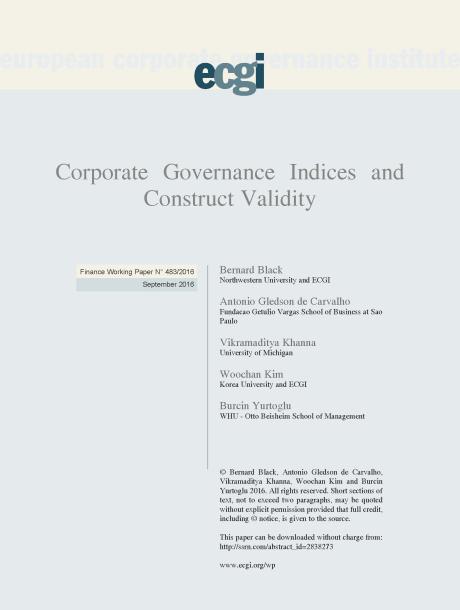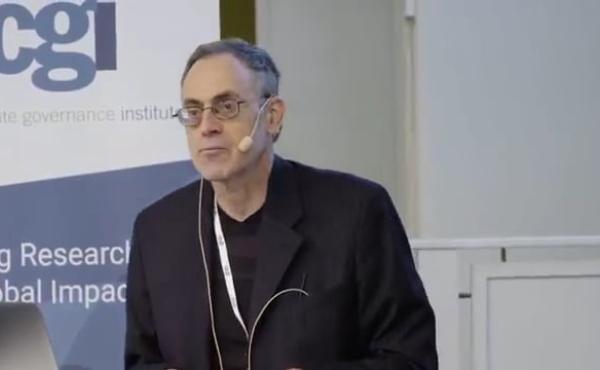
Corporate Governance Indices and Construct Validity
Abstract
We conduct an exploratory analysis of how researchers can address the issue of ?construct validity?, which poses a major challenge to all studies of the effect of corporate governance on firm performance. Many corporate governance studies rely on aggregate governance ?indices? to measure underlying, unobserved governance. But we are not confident that we know how to build these indices ? often we are unsure both as to what is ?good? governance, and how one can proxy for this vague concept using observable measures. These are construct validity questions. As the basis for analysis, we begin with our prior work, in which we build governance indices in four major emerging markets (Brazil, India, Korea, and Turkey). In that work, we argue that one must build country-specific indices, which use country-specific elements that reflect local norms, local institutions, and local data availability. We show that these similar-but-not-identical indices predict firm market value in each country and when pooled across countries, in firm fixed-effects (FE) regressions with extensive covariates. This approach puts great stress on the construct validity challenge of assessing how well a governance measure matches the underlying concept. We address here what can be said about how well these four country-specific indices, and subindices for aspects of governance such as board structure or disclosure, measure unobserved, underlying actual governance quality.








